Is Breast Always Best?

When discussing the ways to feed a new baby we have all heard the popular phrase “breast is best”. For decades now we have seen the breastfeeding movement take shape and become a mainstream piece of advice among doctors, friends, and family. The American Academy of Pediatrics now advises mothers to breastfeed their babies exclusively for the first six months of life.
Through television ads, newspaper articles, and the latest scientific studies we are told breastfed babies suffer less illness and have higher IQ’s than those given formula. This is why an article by Hanna Rosin from The Atlantic magazine entitled The Case Against Breast-feeding along with a 4-woman sit down podcast discussion follow-up about the article is causing quite a stir.
Rosin voices the opinion that breastfeeding is not necessarily what’s best for a family. She feels the modern campaigns that urge women to breastfeed are counteracting the feminist movement as well as overstating flawed scientific data in favor of breastfeeding. After doing some medical research she found that, “The medical literature looks nothing like the popular literature? A couple of studies will show fewer allergies, and then the next one will turn up no difference. Same with mother-infant bonding, IQ, leukemia, cholesterol, diabetes?”
Rosin also discusses how the breast pump can make a woman feel more like a machine than a mother, later adding, “I’m hoping pump companies will just disappear.” As unpopular as Rosin’s opinions on modern-day breastfeeding may sound she has struck a chord with many women, especially those who spend a good deal of their workday behind closed doors with a plastic pump in hand. One woman who felt a kinship to the views expressed in The Case Against Breast-feeding was New York Times writer, Judith Warner who wrote an opinion piece in response called Ban The Breast Pump.
Both Warner and Rosin admit they have enjoyed breastfeeding their children, but feel the idea of feeding a baby formula should be a choice and not a doomed alternative that elicits fear and guilt in women. Warner writes in response to Rosin’s article, “Is it at long last possible ? on this side of the Atlantic ? to suggest that we’ve maybe taken ?breast is best’ a bit too far? That a mother’s need for some semblance of physical dignity is perhaps a right worth respecting? That supplementing with formula ? if it makes for greater happiness (and emotional availability) in the baby’s most important caretaker ? isn’t necessarily an act of gross irresponsibility?”
What do you think of the views expressed that the “breast is best” movement has gone too far?
Do you think the breast pump serves a meaningful purpose to women and babies or is it a negative tool that we can do without?
Make a Comment
 by
shruthireddy | texas, GA
by
shruthireddy | texas, GAMost mothers feel that bresting is frustruated, but it builds the emotion relationship between the mother and baby. The most common benefit of breastfeeding is that it helps in baby's immune system built. I feel that breastfeeding directly is the best method to breastfeed child but no the pumps to use.
 by
josmommy | toledo, OH
by
josmommy | toledo, OHI tried breatfeeding and it was way to frusterating for baby and me I cried and cried cause I just couldnt handle it.I pumped for sligthty over 8 weeks till I returned to work I think with out breast pumps I would have given up after a day or so and just strickly done formula.Breast feeding definatly isnt for every woman. In my opinion breast pumps are a great idea esspecially in a age where most mothers have to return to work to help pay bills..
 by
Elizabeth16_99 | Carrollton, TX
by
Elizabeth16_99 | Carrollton, TXI tried to breastfed my children. My oldest daughter was to lazy to suck and I had to give her a bottle to get her to eat. My son and second daughter lached on wrong everytime and ended up having to be put on a bottle. My youngest daughter was a trooper but my milk was causing her to get sick. It hurts to know that you want to breatfeed but can't. Like I said I tried but when it came to their health what else was I to do. I tried pumping but the older three just didn't want it. I think it is the right of the mother to decide what is best for their child. I say let them be, every mother that does what it takes to take care of their child is doing what is right.
 by
BJenkins | Lake Hopatcong, NJ
by
BJenkins | Lake Hopatcong, NJThis is a very personal thing...I myself did not breastfeed and felt ok with it. If someone chooses to do so, that is fine also. Just as long as the child is healthy... :-)
 by
BMDsMommy | Montgomery, TX
by
BMDsMommy | Montgomery, TXThis article was interesting for me. I have always heard the "breast is best" and what mother does not want the best. So I stuck with it, chapped nipples, breast shields, pumping all the time, and taking meds since I have a low supply. by the time my son was 4 and half months, my body couldn't take it anymore, I was pump almost 6 times a day to try and keep up besides feeding him, it was hard, but I am so glad I didn it. His stomach could only handle so much formula being that little, so I was glad I was able to feed him breastmilk till tummy could handle formula and cereal! It is def a mother's choice and no one should feel forced to breastfeed.
 by
bbwright07 | Calera, OK
by
bbwright07 | Calera, OKBreast may be best, but only if the mother is getting a healthy diet. There are some mothers who want to just kick back and have a glass of alcohol after 9 months of none. Or maybe she wants to fill herself up with caffeine every day. If she is not getting the proper foods and vitamins and minerals, what is her milk going to help the baby? I know most mothers don't act this way, but if your diet is not a healthy diet then it's not going to be healthy for the baby. I would rather have formula for my child than breast milk that is not fulfilling her full needs. My sister breastfed her son and she did not at all have a healthy diet. Her milk looked watery and "thin". Her son was hardly gaining any weight at all and when she finally decided to give up breastfeeding and giving him formula it worked out for the best. He started putting on weight and being active and healthy! Breast is best if you have a healthy diet, but formula is awesome too!
 by
thompson1990 | chicago, IL
by
thompson1990 | chicago, ILmy daughter will be 6 months old august 24th. she has been breast fed ONLY. she only had formula for a short time when she was in the hospital after birth because I had not produced all of my milk yet. and she has not gotten sick ONCE. I personally think you should only formula feed if you have to. if you do not like the way the baby feels breastfeeding then pump and feed them from a bottle. . that is my suggestion. It is a STRONG suggestion. hope i helped. btw breastfeeding gives your children more proteins and nutrients they need to be smarter and have their brain develop better.
 by
3bower | Surprise, AZ
by
3bower | Surprise, AZI did not breat feed for personal reasons. I had my son 17 years ago and used formula for the first month and discontinued because we were very poor at that time. I gave my son whole mik from then on out. He weighed 4 pounds at birth and by 6 months he weighed 22 pounds. He was very healthy and still is. Most women I know that breast fed seemed to have trouble keeping the baby content and full. I know they have the new study out stating that breast fed kids were smarter but I am not sure that it is a true statement either.
 by
liliarose | Davidsonville, MD
by
liliarose | Davidsonville, MDWhen I had my daughter over a year ago, I definately felt guilty anytime I give her a bottle. She was mostly breastfed for the first five months, but it was not easy. We struggled a lot and when I got mastitis, I had enough! She's been bottle-fed since then and she's perfectly healthy and happy.
 by
JoyHappy | Redmond, OR
by
JoyHappy | Redmond, ORI am tring to get pregant right now and i have decided that i want to try and breast feed. That is what i have always wanted to do but my sister had two children and was unable to breast fed and my sister in law couldnt due to the horrible pain, i hope it will be easier for me because i really want to be able to bond with my child in that way. I case i will just have to wait and see how it works out.
 by
lawnanoe | rio linda, CA
by
lawnanoe | rio linda, CAi have 2 sons and i started to breastfeed my first one and it just didnt work out but both of my sons are smart with or w/out breastmilk. even though it may help boost your babies immune system
 by
srg1214 | Perris, CA
by
srg1214 | Perris, CAI've never felt pressure from the breastfeeding movement, only encouragement and support. I breastfed both of my daughters for different lengths of time. With my first daughter, I did not get to breastfeed as long as I wanted. I was a working mom at the time. My pump broke, and my milk wouldn't let down for any other pump. She ended up on formula. My second daughter was different. I just stopped breastfeeding her after 16 months. I never used a pump because she wouldn't take a bottle. I would just sit down a nurse her at every feeding. No matter what you decide, you will always have worries. I worried about weaning my second child, but as selfish as it may sound, I was done. Only breastfeeding from your breast for 16 months was a hard task. I loved it and wouldn't trade that time with my daughter, but it was still hard. As a women and a mother, you have to do what is right for you and your baby. Shame on anybody for judging another person's decision.
 by
ticklemeusilly | Louisville, KY
by
ticklemeusilly | Louisville, KYI breastfed both of my daughters. I think that it should be the choice of each mother. It is not always easy. And not everyone can do so. But I do think that it would be a bad thing if we didn't have Breast pumps they are a lifesaver for many parents. It is very important for moms that are going back to work to have them. I believe wholeheartedly that it is best to breastfeed our children but would never judge a mother for choosing not to do so, there is so much that goes into that decision.
 by
kev3mir42 | antwerp, NY
by
kev3mir42 | antwerp, NYI have two girls one ia almost 3 and our baby will soon be a year. I breastfed both for about the same time but it seemed much harder the second time. I thought it would get easier!. they are coming out with so many new things that will keep your child just as healthy and that is all that does matter in the end.
 by
iheartjulie | San Francisco, CA
by
iheartjulie | San Francisco, CAI don't have any children yet so I've never breastfed before. But I think it's really up to the mother and what she feels comfortable with. I don't think there is much of a difference in terms of which is better. I have two younger brothers and one was breastfed and the other was not due to my mother having two jobs. She simply didn't have the time to breastfeed the other. They both turned out fine! No one better than the other. I think formula is a great alternative. But again, it's up to the mother and there should really be no guilt with making a choice. And breast pumps were made for a reason. No one should be using the pump if they didn't have to...No one should be a slave to the pump...






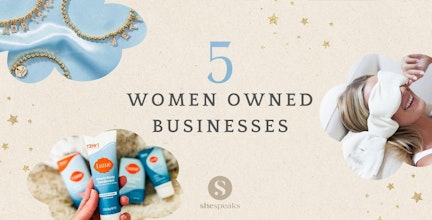


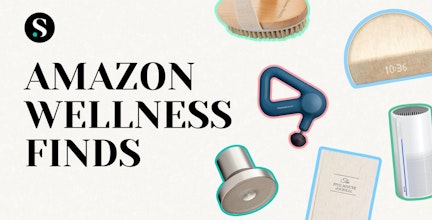
_01252024061712.jpg?max-w=432&max-h=220&fit=crop&auto=format)
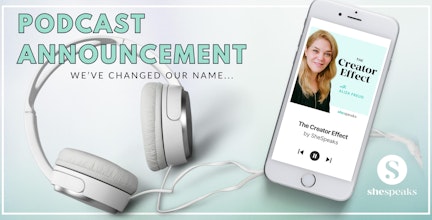
_10242023164832.jpg?max-w=432&max-h=220&fit=crop&auto=format)


_08172023152001.jpg?max-w=432&max-h=220&fit=crop&auto=format)
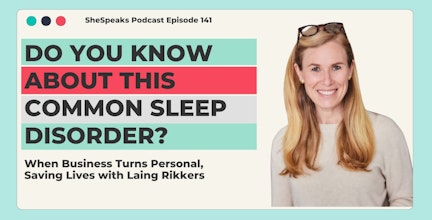
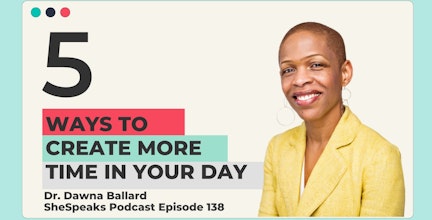
 (6)_07082023175312.jpg?max-w=432&max-h=220&fit=crop&auto=format)
 (1)_05192023144508.jpg?max-w=432&max-h=220&fit=crop&auto=format)
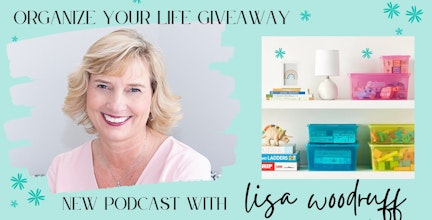
 (37)_05032023114523.jpg?max-w=432&max-h=220&fit=crop&auto=format)
 (3)_04112023125932.jpg?max-w=432&max-h=220&fit=crop&auto=format)
 (36)_04272023152113.jpg?max-w=432&max-h=220&fit=crop&auto=format)